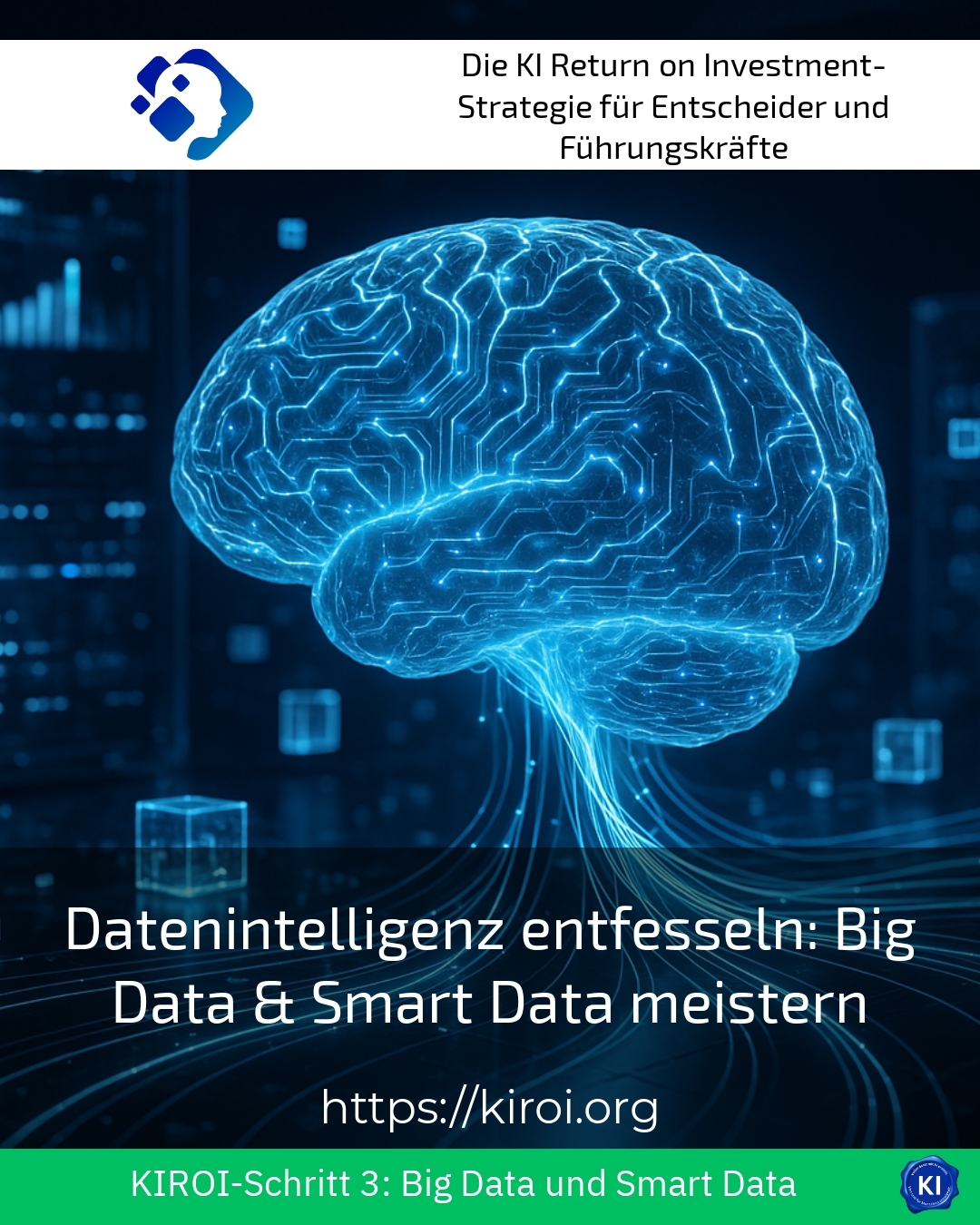Data intelligence is becoming increasingly important in the digital age. Companies are faced with the challenge of extracting real added value from huge amounts of data. Data intelligence describes the ability to generate precise and contextualised smart data from the flood of big data. It is not just about the sheer quantity, but also about the quality and meaningfulness of the information. This intelligently processed data helps companies to make well-founded decisions and develop innovative solutions.
Big data and smart data: the crucial difference
Big data refers to large, heterogeneous and often unstructured volumes of data. This raw information comes from numerous sources such as IoT sensors, transactions or user interactions. Without analysis, however, it offers little direct benefit. Smart data, on the other hand, is high-quality, filtered and contextualised information that is extracted from big data. It is precise, relevant and enables fast and reliable decisions.
An example from the automotive industry: a manufacturer collects data from vehicles and customers. Intelligent analyses create smart data that supports product development and increases customer satisfaction. Another example from the telecommunications industry: a provider analyses usage data in order to optimise networks. The raw data is confusing, but targeted filtering and AI-supported processes create smart data that improves performance.
Data intelligence: From a mountain of data to valuable knowledge
Data intelligence is the key to creating real added value from big data. It supports decision-makers in acting more efficiently, securely and with foresight. In numerous industries, the targeted use of smart data facilitates strategic decisions and operational processes.
In the energy sector, for example, huge amounts of data from different sources are brought together - weather data, consumption measurements, market prices. Here, data intelligence shows when the best time to buy energy or utilise the grid is. From millions of customer interactions, a retail company can filter data that provides information about the purchasing behaviour of certain demographic groups. This results in targeted marketing campaigns with a higher chance of success.
Another example from the healthcare sector: hospitals use data intelligence to optimise patient flows and deploy resources more efficiently. By analysing treatment data, waiting times and capacity utilisation, smart data is generated that improves the quality of care.
Practical steps towards data intelligence
To successfully implement data intelligence, companies should follow the following steps:
- Analyse data origin: Where does the relevant data originate? This could be the production hall, the customer platform or a CRM system.
- Clarify the target definition: What should the data be used for? Increase growth, reduce costs or recognise risk?
- Select technologies: Use of big data platforms combined with smart data analyses, machine learning or AI.
- Ensure data quality: Only reliable, complete and up-to-date data leads to reliable results.
- Communicate results: Data intelligence must be translated into understandable impulses for action.
An example from logistics: a freight forwarder analyses delivery data in order to optimise routes and shorten delivery times. The combination of GPS data, weather information and traffic information creates smart data that increases efficiency.
Another example from the financial sector: banks use data intelligence to better assess credit risks. By analysing credit history, income data and behavioural patterns, smart data is created that supports decision-making.
An example from the education sector: schools and universities use data intelligence to improve learning success. The analysis of performance data, participation behaviour and feedback generates smart data that enables targeted support measures.
Data intelligence in practice: best practices
BEST PRACTICE for a customer (name withheld due to NDA contract): A medium-sized company from the manufacturing industry was faced with the challenge of optimising the utilisation of its machines. By implementing data intelligence, the company was able to analyse sensor data from production and generate smart data. This data enabled precise planning of maintenance work and a reduction in downtime. Employees reported a significant increase in efficiency and satisfaction.
BEST PRACTICE with a customer (name hidden due to NDA agreement): An e-commerce company used data intelligence to improve the customer experience. By analysing purchasing behaviour, search queries and feedback, smart data was generated that enabled targeted recommendations and personalised offers. Customer loyalty increased significantly and sales were boosted.
BEST PRACTICE for a customer (name withheld due to NDA agreement): An insurance company used data intelligence to process claims faster and more accurately. By analysing claims data, customer data and external information, smart data was created that accelerated processing and increased customer satisfaction.
My analysis
Data intelligence is a decisive factor for success in the digital age. Companies that make targeted use of big data and smart data can make more informed decisions and organise their processes more efficiently. The combination of mass and added value is the key to deriving real benefit from the flood of data. Data intelligence helps to develop innovative solutions and achieve competitive advantages.
Further links from the text above:
Smart data: definition, application and difference to big data
Big data vs. smart data: is more always better?
Unleashing data intelligence: Big Data & Smart Data for Business
Big data: the utilisation of large amounts of data
What is smart data? Definition and explanation of the term
For more information and if you have any questions, please contact Contact us or read more blog posts on the topic Artificial intelligence here.















